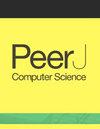Increasing the explainability and success in classification: many-objective classification rule mining based on chaos integrated SPEA2
IF 3.5
4区 计算机科学
Q2 COMPUTER SCIENCE, ARTIFICIAL INTELLIGENCE
引用次数: 0
Abstract
Classification rule mining represents a significant field of machine learning, facilitating informed decision-making through the extraction of meaningful rules from complex data. Many classification methods cannot simultaneously optimize both explainability and different performance metrics at the same time. Metaheuristic optimization-based solutions, inspired by natural phenomena, offer a potential paradigm shift in this field, enabling the development of interpretable and scalable classifiers. In contrast to classical methods, such rule extraction-based solutions are capable of classification by taking multiple purposes into consideration simultaneously. To the best of our knowledge, although there are limited studies on metaheuristic based classification, there is not any method that optimize more than three objectives while increasing the explainability and interpretability for classification task. In this study, data sets are treated as the search space and metaheuristics as the many-objective rule discovery strategy and study proposes a metaheuristic many-objective optimization-based rule extraction approach for the first time in the literature. Chaos theory is also integrated to the optimization method for performance increment and the proposed chaotic rule-based SPEA2 algorithm enables the simultaneous optimization of four different success metrics and automatic rule extraction. Another distinctive feature of the proposed algorithm is that, in contrast to classical random search methods, it can mitigate issues such as correlation and poor uniformity between candidate solutions through the use of a chaotic random search mechanism in the exploration and exploitation phases. The efficacy of the proposed method is evaluated using three distinct data sets, and its performance is demonstrated in comparison with other classical machine learning results.提高分类的可解释性和成功率:基于混沌集成 SPEA2 的多目标分类规则挖掘
分类规则挖掘是机器学习的一个重要领域,它通过从复杂数据中提取有意义的规则来促进知情决策。许多分类方法无法同时优化可解释性和不同的性能指标。受自然现象的启发,基于元启发式优化的解决方案为这一领域带来了潜在的范式转变,使可解释性和可扩展分类器的开发成为可能。与传统方法相比,这种基于规则提取的解决方案能够同时考虑多种目的进行分类。据我们所知,虽然基于元启发式分类的研究很有限,但还没有任何方法能在提高分类任务的可解释性和可解释性的同时优化三个以上的目标。在本研究中,数据集被视为搜索空间,元启发式算法被视为多目标规则发现策略,研究首次在文献中提出了一种基于元启发式多目标优化的规则提取方法。为了提高性能,还将混沌理论融入到优化方法中,所提出的基于混沌规则的 SPEA2 算法可同时优化四个不同的成功指标并自动提取规则。所提算法的另一个显著特点是,与经典的随机搜索方法不同,它通过在探索和利用阶段使用混沌随机搜索机制,缓解了候选解之间的相关性和一致性差等问题。我们使用三个不同的数据集对所提方法的功效进行了评估,并将其性能与其他经典机器学习成果进行了比较。
本文章由计算机程序翻译,如有差异,请以英文原文为准。
求助全文
约1分钟内获得全文
求助全文
来源期刊

PeerJ Computer Science
Computer Science-General Computer Science
CiteScore
6.10
自引率
5.30%
发文量
332
审稿时长
10 weeks
期刊介绍:
PeerJ Computer Science is the new open access journal covering all subject areas in computer science, with the backing of a prestigious advisory board and more than 300 academic editors.
 求助内容:
求助内容: 应助结果提醒方式:
应助结果提醒方式:


